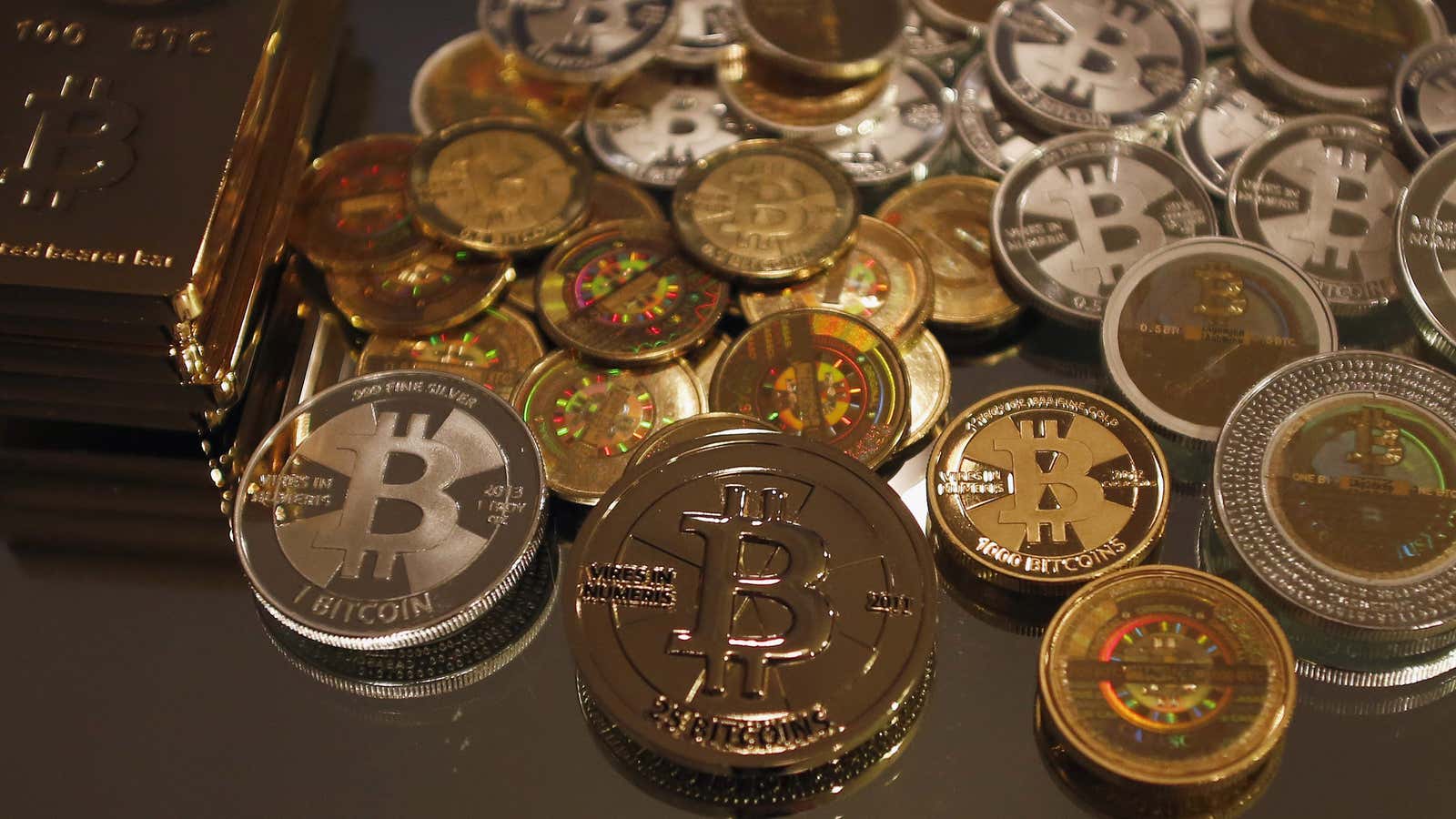The European commission said yesterday (July 5) that it was proposing strict new rules for companies that exchange or store digital currencies such as bitcoin. The European Union’s executive arm wants to make exchanges and storage services comply with the anti-money-laundering rules that govern banks and other financial institutions.
The requirements can be onerous. Companies must collect their customers’ identity documents, and maintain detailed records. They must also monitor transactions on their platforms and report any that run the risk of being linked to money-laundering or terrorism-financing. Even established financial institutions have found these requirements burdensome.
Not so for bitcoin companies. They’re positively welcoming the increased scrutiny, taking it as a sign that the digital currency is being taken seriously by government. In fact, many of the most well-funded companies had already put these regulatory measures in place voluntarily, in some cases for years. “We have anticipated this stance from the European commission from day one,” says Frank Schuil, co-founder of Safello, a bitcoin exchange in Sweden. Schuil’s company has required customer identity documents since it launched in 2013, he says.
Safello isn’t alone. Take Circle, a Venmo-like wallet service backed by Goldman Sachs that lets users convert between bitcoin and US dollars and pounds sterling. It’s regulated by the United Kingdom’s Financial Conduct Authority as an “e-money” transmitter, so it’s already subject to strict anti-money-laundering rules. “We appreciate the European commission’s receptiveness to industry comments and their efforts to develop comprehensive AML rules,” John Beccia, Circle’s general counsel, said in response to the proposed EU rules.
Indeed, neither Safello nor Circle plan to make any major changes to the way they identify customers or monitor transactions. Well-funded and institutionally backed firms like Circle, which has raised over $130 million, will be able to shrug off the burden of the EU’s proposals. Marketplaces that facilitate meetings for cash-based transactions, such as Local Bitcoins, or the dozens of small bitcoin ATM networks, might have a tougher time coping. “Smaller brokerages that have operated on a fraud-prevention basis, as opposed to AML, for them the compliance burden may be harder to deal with,” says Schuil of Safello.
The EU’s new stance probably won’t make an impact on bitcoin’s price, either. That’s because much of the trading volume in the EU already flows through exchanges that have AML policies in place, such as Slovenia-based Bitstamp, which accounted for about 5% of all euro-bitcoin trading in the last 30 days, according to data provider Bitcoinity. The biggest marketplace for euro-bitcoin trading, San Francisco-based Kraken—which saw 62% of that trading volume take place in the last 30 days, according to Bitcoinity—also operates through an e-money transmitter regulated in Luxembourg, which requires identity information.
The EU’s new, more hands-on approach to bitcoin regulation, then, has already been priced in by the companies in the sector. The fact that once-voluntary measures are likely to become mandatory (the commission’s proposals must still be approved by the European parliament and member states) is a stamp of legitimacy for the notorious digital currency.
